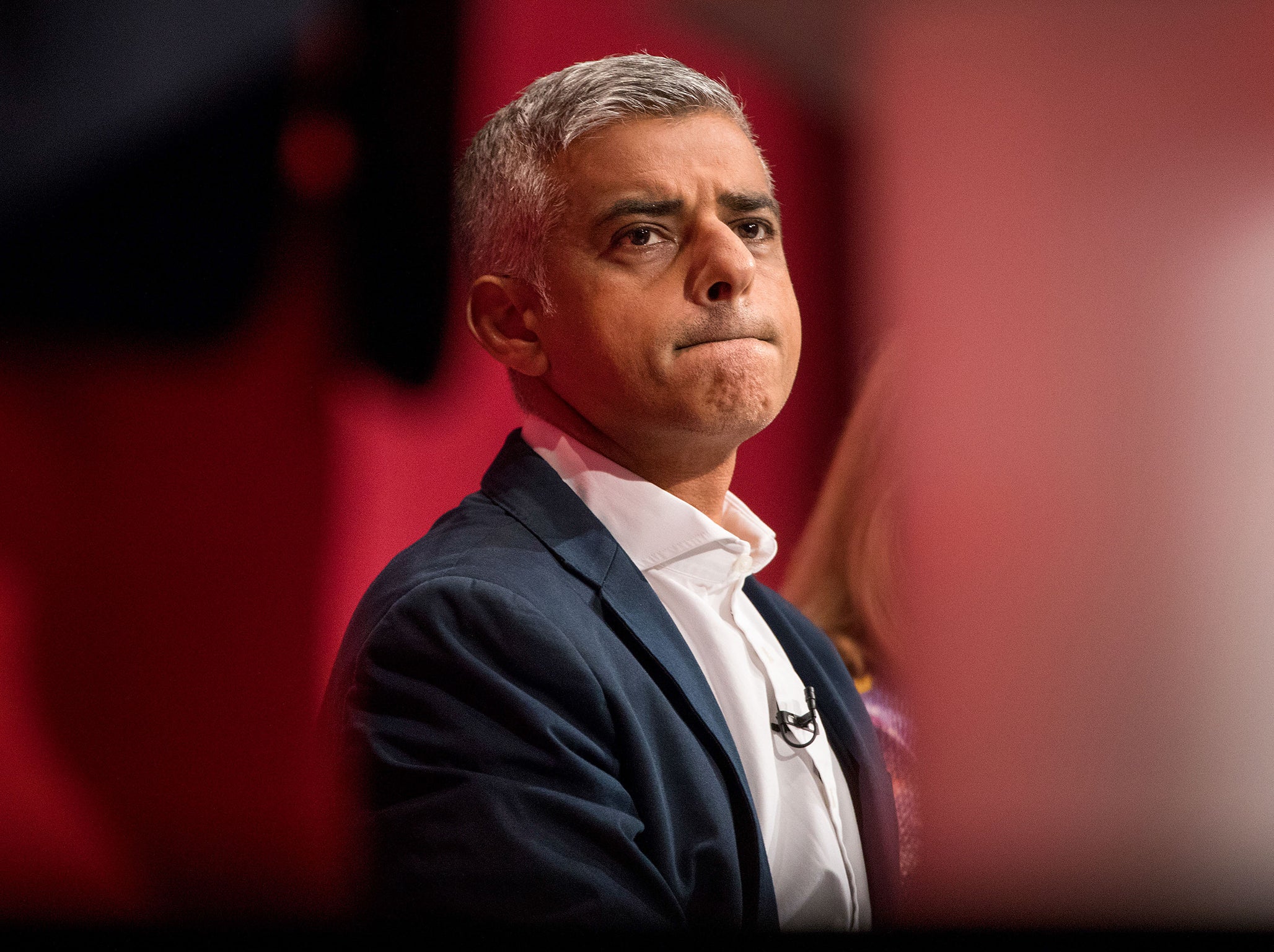Brexit: London's social care services to 'plunge into crisis' amid threat to EU workers in capital, Sadiq Khan warns
Exclusive: Mayor says care sector will struggle to retain and recruit staff it 'desperately' needs

Sadiq Khan has said London’s social care services face a major crisis due to the government’s approach to Brexit due to the high number of EU migrants working in the sector.
The London mayor made the claim as he went into full campaign mode ahead of local elections in which he called on Londoners to vote against the Tories to show their displeasure over Brexit.
Around 13 per cent of London’s care workers are from the EU, with the capital’s adult care sector far more dependent on non-British EEA (European Economic Area) workers than any other region in England.
“London’s care sector is already struggling, having been starved of the funding it needs by the Tories for nearly a decade. Thousands of adult social care workers are doing the best they can to provide care to those in need,” Mr Khan said.
“But their job is going to be made even harder if the Tories continue to pursue a damaging extreme hard Brexit, which would stop the care sector retaining and recruiting the staff it so desperately needs.”
The Mayor said the local elections were the “last chance” for Londoners to have their say on Brexit, and urged them to use their vote to send the message that they don’t want a “Tory extreme hard Brexit, which would plunge London’s care sector deep into crisis”.
The UK’s care sector is already struggling as it grapples with recruitment and staff retention problems. There was a 6.6 per cent vacancy rate for jobs across the care sector in 2016-17, rising from 5.5 per cent in 2012-13, with the vacancy rate for nurses alone having more than doubled across the same period.
New analysis of National Audit Office and NHS statistics reveal that in 2016-17 more than half of the top 20 local authorities in England with the highest proportion of care jobs held by non-British EEA nationals were in London.
The Tory-run local authority of Richmond upon Thames has the highest proportion of non-British EEA care workers in England, with 21.5 per cent of the workforce coming from other EU countries. Other Tory boroughs are high on the list, with Barnet having the fourth highest proportion of EU workers and Hillingdon the 17th.
The mayor’s comments have been welcomed by leading figures in the care sector, who warn there’s a danger that Brexit could exacerbate understaffing already prevalent in the industry.
Kamran Mallick, chief executive of Disability Rights UK, told The Independent: “The social care sector is already badly understaffed, with many services struggling to recruit enough people to meet demand. There’s a danger Brexit will exacerbate those recruitment problems.
“We need the government to come up with a strategy which will help ensure disabled people can get access to the social care services they want and need.
“We’ve already seen the impact of cuts to social care support and the knock on effect on individuals, their families and the communities they live in. It’s crucial that isn’t made worse by a recruitment crisis.”
Mr Khan’s intervention comes after he published research earlier this week showing that 85 per cent of London doctors say Brexit will see the NHS suffer. According to the report, leaving the customs union and single market after the implementation period will have a negative impact on the NHS and patients.
A report published on Tuesday by the Home Office’s Migration Advisory Committee (MAC) revealed that adult social care was among sectors at risk of losing out on “vital” workers if immigration is reduced after Brexit.
It found workers from the European Economic Area (EEA) were “more motivated and flexible than UK-born workers”, including a greater willingness to work longer and unsociable hours, and said they were often better qualified for the jobs they do.
Research seen exclusively by The Independent last year meanwhile showed that the loss of carers from EU countries could see elderly and disabled people “slide back” into depending on institutions and unable to live at home.
Join our commenting forum
Join thought-provoking conversations, follow other Independent readers and see their replies
Comments
Bookmark popover
Removed from bookmarks